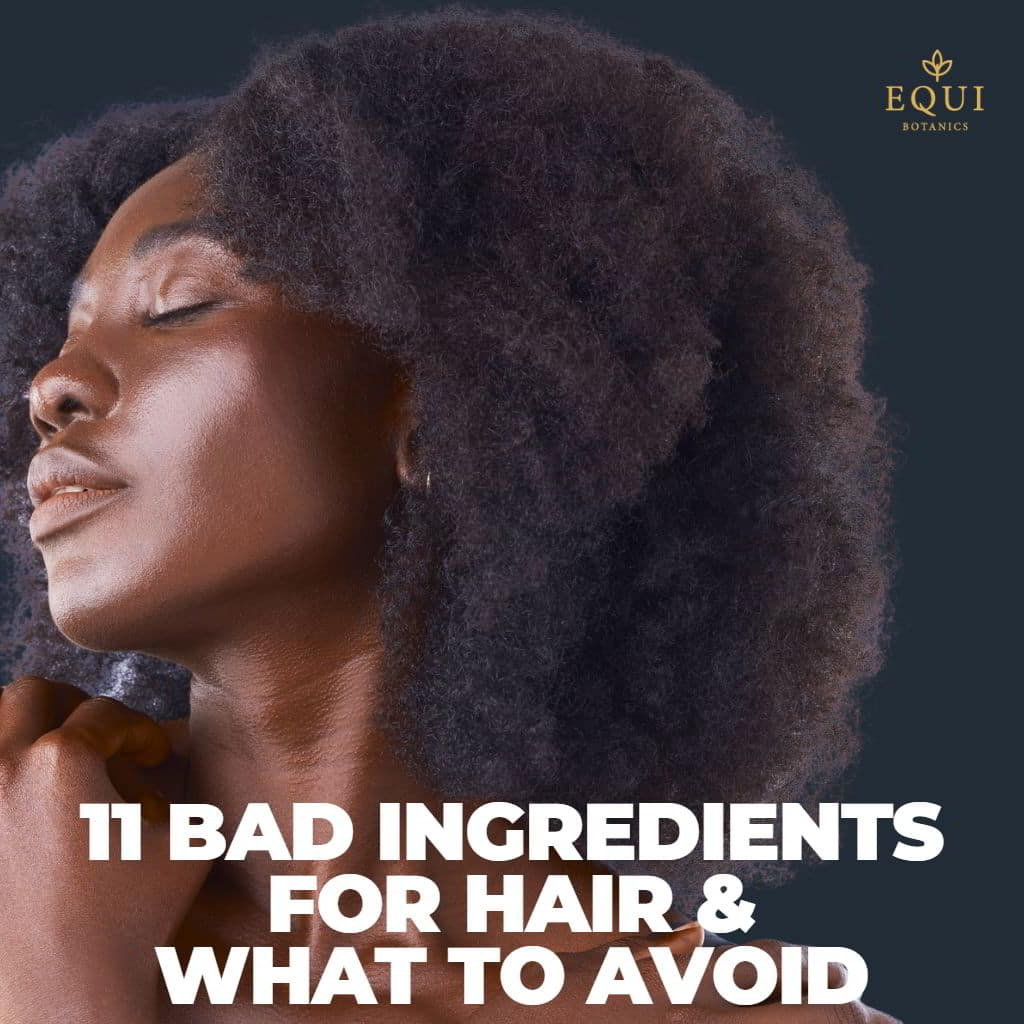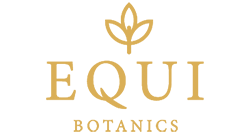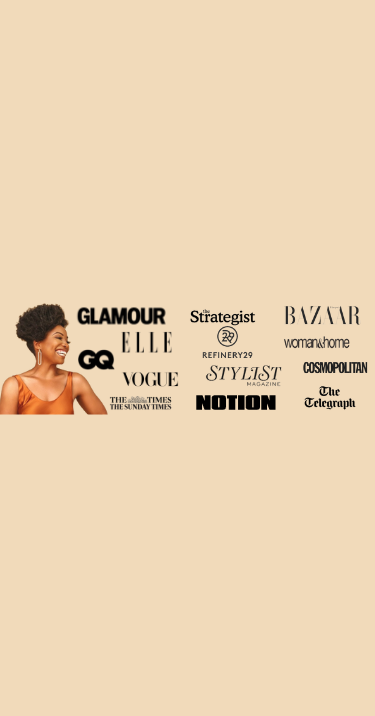
There’s a lot to consider when it comes to hair care, as you want effective formulations but obviously not harmful ones. With so much differing advice, we’re on hand with an in-depth guide of 11 of the bad ingredients for hair you definitely need to steer clear of. Keep reading!
Short on Time? Here are Some Fast Facts
- Chemical and synthetic ingredients are commonly used hair care products, but rather than helping support hair health, they can actually be damaging it.
- Look to avoid ingredients such as alcohol, parabens and sulphates.
- Switch your hair care to naturally-derived formulations that can support hair health and nourish your locks.
Are My Hair Products Toxic?

For those who are into their hair care, it’s likely that you’ll have heard mutterings of the toxic ingredients found within some formulations. If you’re wondering how toxic your products are, sadly the answer isn’t straightforward.
Firstly, it is important to note that not all hair care products contain toxic ingredients. Many companies have started to focus on creating more natural and organic products that do not contain harmful chemicals. However, it’s also true that there are still many products available that do contain potentially damaging ingredients.
When it comes to determining whether your hair care products are toxic, it is important to look at the ingredients list on the packaging. Some of the most common toxic ingredients to avoid in hair care products include sulphates, parabens, phthalates and formaldehyde.
If you see any of these ingredients listed, it may be worth considering switching to a more natural product. Whilst not all synthetic ingredients are harmful, natural ingredients offer your hair and scalp a gentler experience.
11 Ingredients to Avoid in Hair Care Products

1. Sulphates
Sulphates are an ingredient commonly found in shampoos, but are definitely one to avoid. They are used to create that bubbly lather that people believe is a sign of the product working. Interestingly, that lather is purely for aesthetic purposes and isn’t necessary to actually cleanse hair. Sulphates can be incredibly harsh on the hair and scalp, stripping away natural oils leading to dryness and irritation. Switch to a sulphate-free formulation that will provide your tresses with a far gentler experience
2. Silicones
Silicones are used in many hair care products to create a smooth, silky texture but can also create a buildup of product that can leave your locks looking both dull and lifeless. Using products with silicones will mean that you would need to regularly use a clarifying shampoo to remove the buildup, which can also be harsh on the sensitive scalp area.
3. Parabens
Parabens are in shampoo and other hair care products and are used as preservatives to prevent bacterial growth. However, they have been linked to hormone disruption and have even been found in breast cancer tumours.
Parabens are also bad for hair as they can be drying and, in some cases, cause hair loss. You’ll want to steer clear of this bad ingredient so be sure to look for paraben-free hair products!
4. Phthalates
Phthalates are used in many hair care products to make them more pliable, and also form part of the artificial fragrance that can make shampoos smell tantalisingly good. Don’t be fooled by the tropical scents of these products, though, as research has shown that this ingredient, particularly one variant known as DEHP, is harmful to our long-term health. The use of some phthalates has been banned in the UK as well as other countries but some are still used, so take care to avoid!
5. Formaldehyde
Formaldehyde is a preservative used in some hair care products to prevent bacterial growth but, it can cause irritation, allergic reactions, has been linked to cancer, and studies have shown it can even cause asthma.
Look to avoid products that include ingredient names such as: quaternium-15, imidazolidinyl urea, diazolidinyl urea, polyoxymethylene urea and sodium hydroxymethylglycinate.
6. Para-phenylenediamine
PPD, or para-phenylenediamine, is a chemical commonly found in hair dyes, particularly darker shades that is used to create dark, longer-lasting colour, but has also been linked to a range of health issues, including skin irritation, allergic reactions, and respiratory problems.
PPD can also be damaging to the hair itself as it can cause dryness, brittleness and breakage, particularly when used in high concentrations or on hair that has already been damaged by other chemical treatments.
7. Propylene Glycol
Propylene glycol is included in some hair care products to create a smooth, frizz-free texture. It’s a humectant that softens tresses and makes them more manageable and whilst that might sound great, it can also cause irritation and allergic reactions. Natural oils can be used in place of this ingredient to tame frizz and create soft, luscious locks.
8. Synthetic Fragrances
Synthetic fragrances are often made from a mixture of chemicals, including phthalates, that can be potentially harmful to both human health and the environment. Synthetic fragrances are especially problematic for those with sensitive skin or allergies as they can be highly irritating causing a range of symptoms, such as itching, redness and flaking. For those with eczema or psoriasis, synthetic fragrances can exacerbate the condition, leading to more severe symptoms.
9. Alcohol
Alcohol is commonly found in hair care products, but it can be very drying and damaging to the locks. Although some types of alcohol, such as cetearyl or stearyl, can help to retain moisture, most will have the opposite effect and it’s definitely a bad shampoo ingredient. If you find a shampoo with alcohol listed as one of the first four ingredients then steer clear! As a general rule, the bad alcohols tend to have a “prop” in their name, like isopropyl alcohol or propanol.
10. Coal Tar
Coal tar is a byproduct of coal processing and is used in some hair dyes. The petroleum-derived ingredient can contain a variety of other chemicals and metals that have been linked to cancer and should be avoided.
11. Triclosan
Triclosan is a synthetic antibacterial and antifungal agent that was originally used in hospital settings but has since been added to various personal care products, including hair care to prevent bacterial growth. There are, however, there are concerns about its safety and potential environmental impact.
Studies have linked triclosan exposure to reproductive hormone disruption, and its use has been restricted in some personal care items across the world but it is still allowed in hair care products. To avoid exposure to triclosan, look for products that use natural antimicrobial agents, such as tea tree oil oil, instead.
What Ingredients are Not Bad for Hair?

Natural hair care products are made from non-toxic ingredients and oils derived from plants, fruits and herbs that are far gentler on the hair and scalp. Often, they are cruelty-free and vegan and their natural ingredients make them a more environmentally-friendly alternative to synthetic and chemical formulations.
If you’re planning to make the switch to natural hair care products, you’ll want to be sure you choose the right ones for your locks. Look for products that contain the following:
Argan Oil
Argan oil is a popular natural ingredient that’s used in many hair care products due to its ability to nourish and protect hair. Rich in antioxidants and vitamin E, it can help to protect hair from environmental damage caused by factors such as pollution and UV radiation. Simply apply a small amount of the oil to the ends of your hair and work your way up, focusing on any particularly dry or damaged areas. Leave the oil on for at least 30 minutes before washing your hair as normal.
Baobab Oil
Baobab oil contains a variety of vitamins and antioxidants, making it a great natural ingredient to promote healthy hair growth and repair damage. We love the Baobab Detangler & Cleanser as a naturally-derived shampoo alternative, as it gently cleanses locks whilst supporting moisture thanks to its nourishing formulation that also contains ingredients such as almond oil.
Baobab Hair Detangler & Cleanser
We prefer to avoid calling this a detangling shampoo. Instead, we call ours a detangling cleanser because it’s softening and moisturising while cleansing thoroughly. It also acts as your pre-poo detangler before you wash. Are you tired of that stripped feeling after you’ve just washed your hair? Wash your hair not strip it of its natural oils.
Tea Tree Oil
For those that struggle to keep on top of scalp health, or suffer with dandruff, try introducing tea tree to your hair care routine. The antifungal and antibacterial properties found in this oil can help keep your scalp healthy and flake free.
To use tea tree oil on your hair, simply mix a few drops of the oil into your regular shampoo or conditioner, or apply it directly to your scalp and massage it in. Leave the oil on for a few minutes before washing your hair as normal.
Shea Butter
Shea butter is a natural moisturiser that helps to prevent hair breakage and promote healthy hair growth. It is particularly useful for people with naturally curly or textured hair, as it can help to define curls and reduce frizz. To use shea butter on your hair, melt a small amount in your hands and apply it to your hair, focusing on the ends and any particularly dry or damaged areas.
Black Seed Oil
Black seed oil is another natural ingredient that is rich in antioxidants and can help promote healthy hair growth and reduce inflammation on the scalp. Try the Black Seed Hair Oil Elixir, as this multi-purpose product can be applied in various ways including as a mask, serum, daily treatment and scalp ointment.
Black Seed Hair Oil Elixir
This Black Seed Oil For Hair is enriched with Fenugreek, Brahmi and Bhringaraj ayurvedic oils, our first hair serum is your best bet to reaching your hair goals. Stop split ends, check. Stop itchy scalp, check. Help accelerate growth, check check check. We've jam-packed this little bottle with luxurious ingredients from the Caribbean, India and the Amazonian rainforest to give you longer, thicker, and stronger hair in less time.
Chamomile
Chamomile is a great natural alternative that can help to soothe an irritated scalp and promote hair growth, and is particularly useful for people with sensitive scalps or those who experience itching or flaking. To incorporate in your hair routine, pop a few chamomile tea bags in hot water for several minutes, allow the tea to cool, and then use it as a rinse after shampooing your locks.
Marula Oil
Marula oil is a lightweight oil that can help hydrate your hair and prevent breakage. Rich in antioxidants and essential fatty acids, it works to strengthen hair and reduce damage. Apply a product such as the Marula Leave-In Conditioner, as this naturally-derived formulation will support hair health, leaving locks soft and silky smooth unlike chemical conditioners packed full of parabens and silicones that are bad for your hair.
Marula Oil Leave in Conditioner
The Marula Oil Leave in Conditioner is jam-packed with natural high performing goodness, it can be used on its own without extra oils or butters. Say good-bye to the hassle of LOC or LCO method of conditioning. The Marula oil leave-in is a 3-in-1 as it works as a leave-in, is based on an oil and it’s a cream, saving you time and money.
Conclusion
If you want to keep your hair healthy and looking its best, it’s important to choose hair care products that are free from harmful chemicals. There are many products on the market that might look and smell great, but do you really know what’s inside them?
Avoid bad ingredients for hair such as sulphates, parabens, and synthetic fragrances that can cause a range of health problems, from scalp irritation to asthma. Instead, switch out these hair nasties for naturally-derived formulations that will allow you to make an informed choice about what you’re putting on your hair and scalp.


